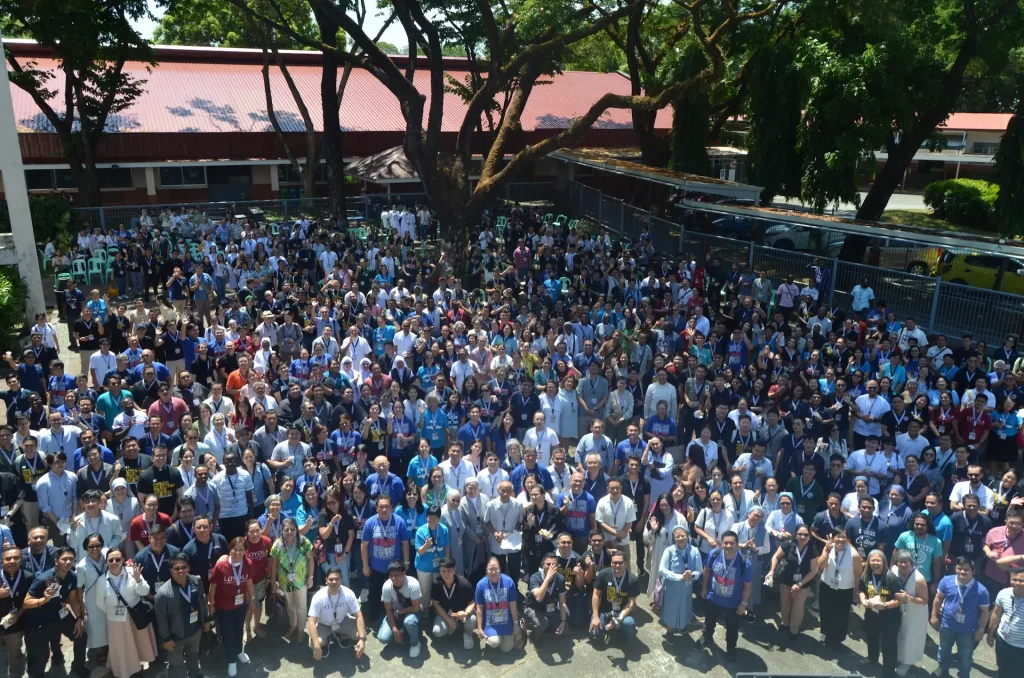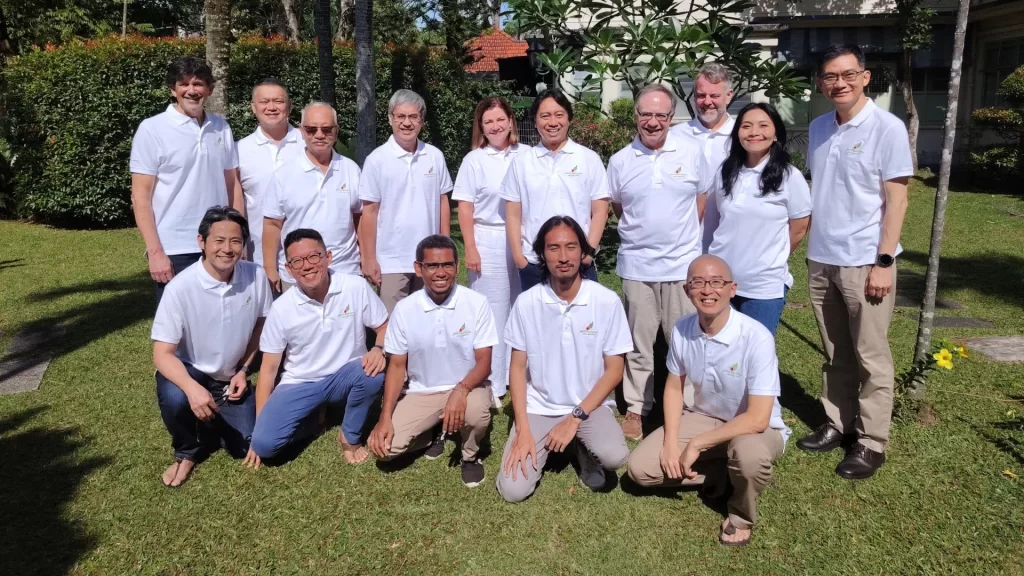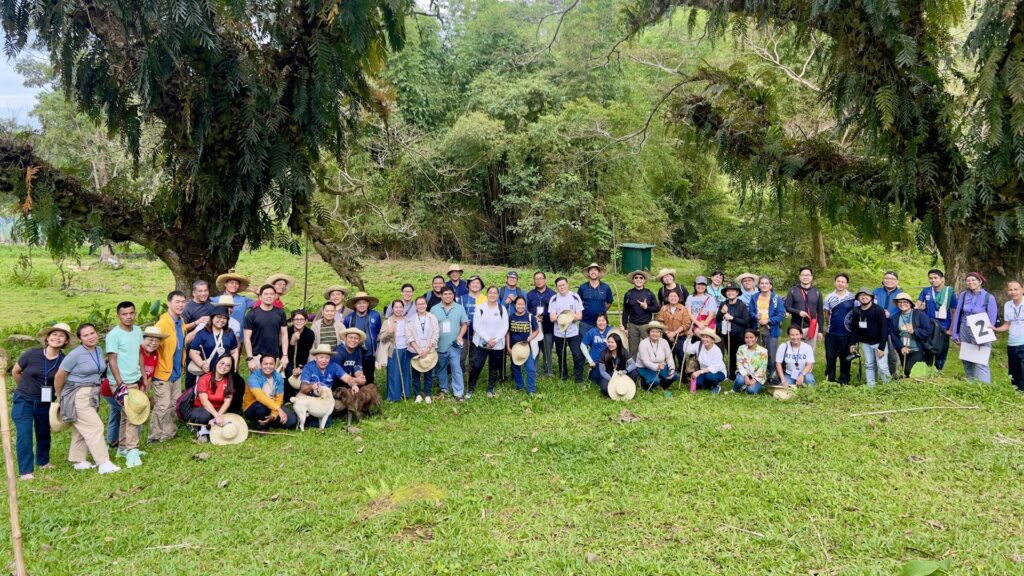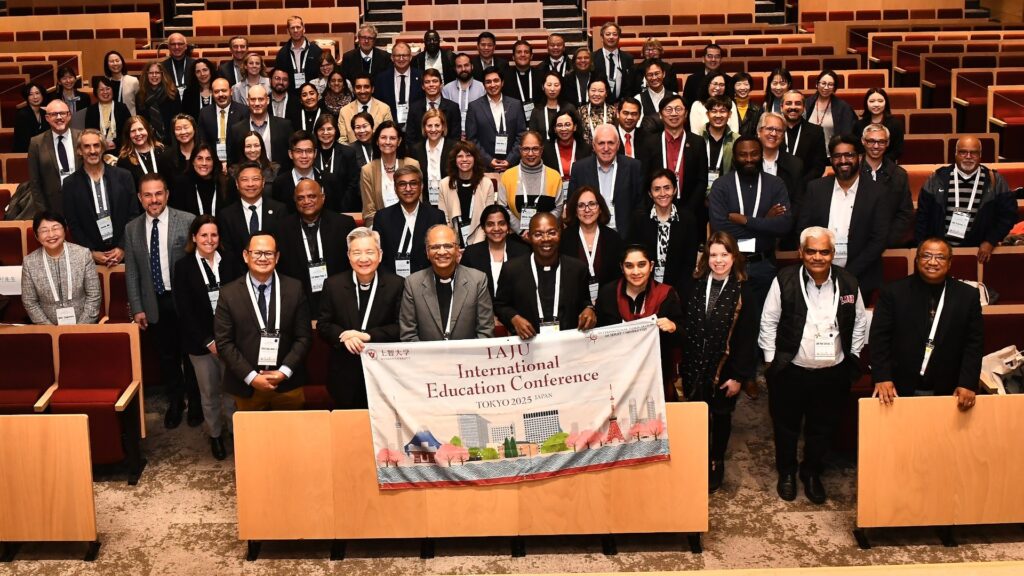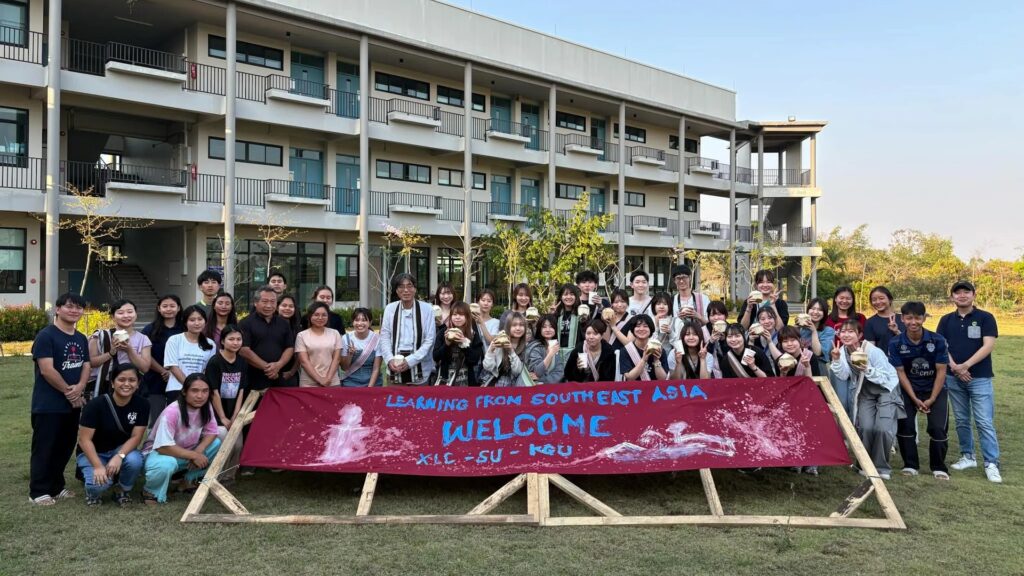What is the role of Jesuit universities in social justice? This was a question that participants at the recent meeting of the Association of Jesuit Colleges and Universities in Asia Pacific (AJCU-AP) were asked to consider. In his presentation on the topic, Fr Patxi Álvarez SJ, Assistant to Father General for Social Justice, reminded the gathering that Fr General Adolfo Nicolás has said that “In Jesuit education, the depth of learning and imagination encompasses and integrates intellectual rigor with reflection on the experience of reality together with the creative imagination to work toward constructing a more humane, just, sustainable, and faith-filled world.”
Fr Alvarez spoke of the special document, The Promotion of Justice in the Universities of the Society, which states that the raison d’être of Jesuit universities today is to respond to the Jesuit mission and to be inside the Church, as well as to bring forth an education characterized by utilitas, iustitia, humanitas et fides. Fr Alvarez also took the group through the four areas in which universities are to act for the promotion of justice – student formation, university research, social projection: the university as a transformative institution, and a university community that promotes justice.
The annual meeting, which was held on August 26 and 27, was chaired and hosted by Fr Joel Tabora SJ, President of Ateneo de Davao University. Participants included representatives of Jesuit institutions of higher education in Asia Pacific – Ateneo de Manila University, Ateneo de Zamboanga University, Loyola College of Culion, Loyola School of Theology, and Xavier University in the Philippines; Sanata Dharma University in Indonesia; Faculty of Theology of St. Robert Bellarmine in Fu Jen Catholic University in Taiwan; Loyola Vietnam Centre; Sogang University in Korea; and Sophia University in Japan.
Some of the matters shared in the usual exchange of experiences were new programs and endeavours and the diversity of contexts among the member-institutions. In speaking of the operations of the theologate in Fu Jen Catholic University, Fr Louis Gendron SJ shared that half of his students are religious from the different congregations in mainland China. Fr Agus Sriyono SJ of Politeknik ATMI-Surakarta shared his experience of setting up several vocational schools in Indonesia. Fr Primitivo Viray SJ of Ateneo de Naga University spoke of the challenges of the educational reforms in the Philippines, especially with the addition of two years in basic education. He also highlighted the need to improve the Bikol region’s economy by assisting the government and private sector in tourism and other areas. Fr Julio Giulietti SJ of Loyola Center in Vietnam talked about the situation in Vietnam and the context of communism and Marxist-Leninist philosophy in the country.
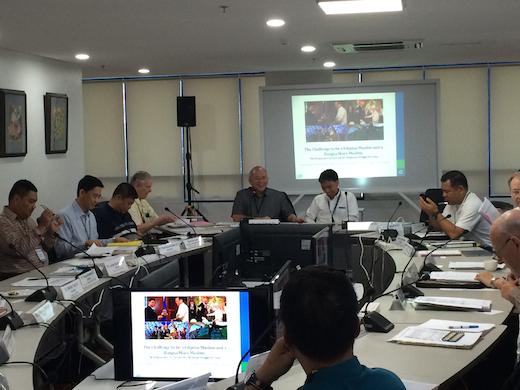
A lively interaction and sharing of insights followed. The speakers were asked questions, and possible ways were shared to discuss the issues and to raise awareness in the different member-institutions. The three Ateneos in Mindanao, for example, have already formed a network to collaborate on peace building efforts in their communities.
There was also a report on last year’s Service Learning Program, which was hosted by Ateneo de Naga University from August 5 to 24, 2013. The 40 students who participated were from Sogang University, Ateneo de Naga University, Ateneo de Davao University, Elisabeth University of Music, Xavier University and Ateneo de Zamboanga University. Under the theme “Love for the Poor”, the participants were introduced to the religious culture in the Bikol region and its poverty, and built a house powered by solar energy for a poor family in Calabanga, Camarines Sur. The 2015 Service Learning Program will be hosted by Sogang University in Seoul, South Korea.
The next AJCU-AP meeting will be held in Australia.


